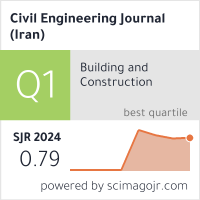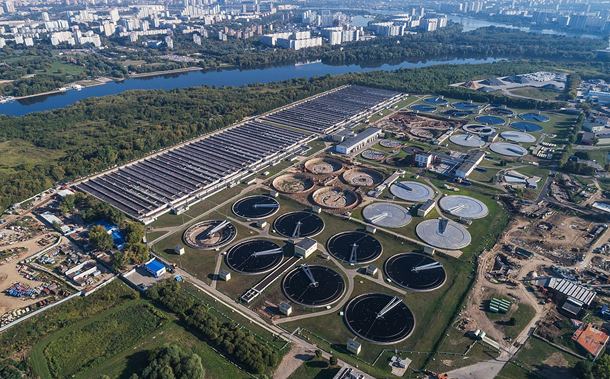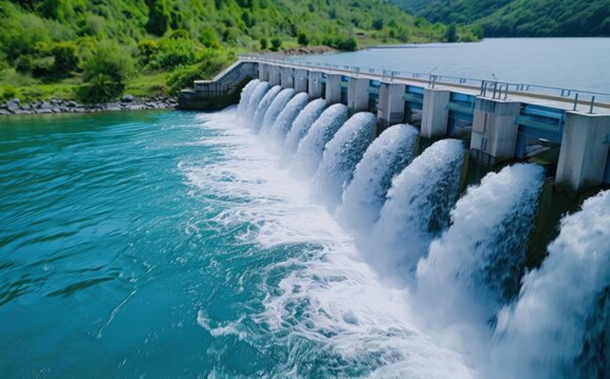The Effectiveness of the Procurement at the Construction Services Selection Implementation Center
Downloads
Doi:10.28991/CEJ-2024-010-03-013
Full Text:PDF
Downloads
[2] Alvanchi, A., Shiri, N., & Alikhani, H. (2020). In-depth investigation of project planning and control software package application in the construction industry of Iran. International Journal of Engineering, 33(10), 1817-1825. doi:10.5829/ije.2020.33.10a.01.
[3] Langevin, J., Wen, J., & Gurian, P. L. (2015). Simulating the human-building interaction: Development and validation of an agent-based model of office occupant behaviors. Building and Environment, 88, 27-45. doi:10.1016/j.buildenv.2014.11.037.
[4] Mohd Fateh, M. A., Mohamed, M. R., & Omar, S. A. (2022). The Involvement of Local Skilled Labour in Malaysia's Construction Industry. Frontiers in Built Environment, 8, 1–19. doi:10.3389/fbuil.2022.861018.
[5] Nurhendi, R. N., Khoiry, M. A., & Hamzah, N. (2019). Review on factors influencing labour productivity in construction project. International Journal of Recent Technology and Engineering, 7(6), 837–844.
[6] He, C., Milne, A., & Ataullah, A. (2023). What explains delays in public procurement decisions? Economic Modelling, 121, 106201. doi:10.1016/j.econmod.2023.106201.
[7] Abduh, M., Sukardi, S. N., Wirahadikusumah, R. D., Oktaviani, C. Z., & Bahagia, S. N. (2023). Maturity of procurement units for public construction projects in Indonesia. International Journal of Construction Management, 23(13), 2171–2184. doi:10.1080/15623599.2022.2046941.
[8] Arts, J., Hanekamp, T., Linssen, R., & Snippe, J. (2016). Benchmarking integrated infrastructure planning across Europe–Moving forward to vital infrastructure networks and urban regions. Transportation Research Procedia, 14, 303-312. doi:10.1016/j.trpro.2016.05.024.
[9] Lăzăroiu, G., Ionescu, L., UŠ£Äƒ, C., Hurloiu, I., Andronie, M., & Dijmarescu, I. (2020). Environmentally responsible behavior and sustainability policy adoption in green public procurement. Sustainability (Switzerland), 12(5), 2110. doi:10.3390/su12052110.
[10] Nurmandi, A., & Kim, S. (2015). Making e-procurement work in a decentralized procurement system: A comparison of three Indonesian cities. International Journal of Public Sector Management, 28(3), 198–220. doi:10.1108/IJPSM-03-2015-0035.
[11] Sandi, P. V., Rohman, M. A., & Utomo, C. (2020). A concept to evaluate procurement principles implementation of public construction project in Surabaya. IOP Conference Series: Materials Science and Engineering, 930(1), 012005. doi:10.1088/1757-899X/930/1/012005.
[12] Masudin, I., Aprilia, G. D., Nugraha, A., & Restuputri, D. P. (2021). Impact of E-Procurement Adoption on Company Performance: Evidence from Indonesian Manufacturing Industry. Logistics, 5(1), 16. doi:10.3390/logistics5010016.
[13] Afolabi, A., Ibem, E., Aduwo, E., & Tunji-Olayeni, P. (2022). Digitizing the grey areas in the Nigerian public procurement system using e-Procurement technologies. International Journal of Construction Management, 22(12), 2215–2224. doi:10.1080/15623599.2020.1774836.
[14] Tabish, S. Z. S., & Jha, K. N. (2011). Analyses and evaluation of irregularities in public procurement in India. Construction Management and Economics, 29(3), 261–274. doi:10.1080/01446193.2010.549138.
[15] Costa, A. A., Arantes, A., & Valadares Tavares, L. (2013). Evidence of the impacts of public e-procurement: The Portuguese experience. Journal of Purchasing and Supply Management, 19(4), 238–246. doi:10.1016/j.pursup.2013.07.004.
[16] Owusu, E. K., Chan, A. P. C., Hosseini, M. R., & Nikmehr, B. (2020). Assessing procurement irregularities in the supply-chain of ghanaian construction projects: A soft-computing approach. Journal of Civil Engineering and Management, 26(1), 66–82. doi:10.3846/jcem.2020.11659.
[17] Montalbán-Domingo, L., García-Segura, T., Amalia Sanz, M., & Pellicer, E. (2019). Social Sustainability in Delivery and Procurement of Public Construction Contracts. Journal of Management in Engineering, 35(2), 4018065. doi:10.1061/(asce)me.1943-5479.0000674.
[18] Siyal, S., & Xin, C. (2020). Public Procurement. Global Encyclopedia of Public Administration, Public Policy, and Governance. Springer, Cham, Switzerland. doi:10.1007/978-3-319-31816-5_344-1.
[19] Thai, K. V. (2001). Public procurement re-examined. Journal of Public Procurement, 1(1), 9–50. doi:10.1108/jopp-01-01-2001-b001.
[20] Fourie, D., & Malan, C. (2020). Public procurement in the South African economy: Addressing the systemic issues. Sustainability (Switzerland), 12(20), 1–23. doi:10.3390/su12208692.
[21] Lynch, J., & Angel, J. (2013). Public procurement: Principles, categories and methods. Procurement Classroom Series, 2, Victoria, Canada.
[22] Komakech, R. A. (2016). Public procurement in developing countries: Objectives, principles and required professional skills. Public Policy and Administration Research, 6(8), 20-29.
[23] Ruparathna, R., & Hewage, K. (2015). Review of Contemporary Construction Procurement Practices. Journal of Management in Engineering, 31(3). doi:10.1061/(asce)me.1943-5479.0000279.
[24] Mojumder, A., Singh, A., Kumar, A., & Liu, Y. (2022). Mitigating the barriers to green procurement adoption: An exploratory study of the Indian construction industry. Journal of Cleaner Production, 372. doi:10.1016/j.jclepro.2022.133505.
[25] Sabarish P, Dinesh, S., & Preetha, R. (2016). Literature Study on Socio-Economic Factors of Construction Industry in Developing Countries. International Journal of Science, Engineering and Technology Research, 5(11), 2278–7798.
- Authors retain all copyrights. It is noticeable that authors will not be forced to sign any copyright transfer agreements.
- This work (including HTML and PDF Files) is licensed under a Creative Commons Attribution 4.0 International License.![]()















